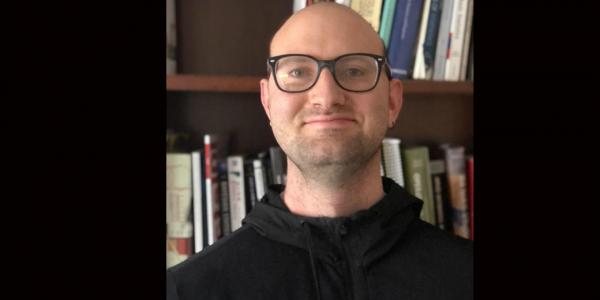Department of Music Lecture: Rami Toubia Stucky
Rami Toubia Stucky, Lecturer in Music, Washington University in St. Louis
Abstract
Ask your Amazon Alexa or Google Home to “play bossa nova.” You will hear the mellifluous sounds of white artists such as GRAMMY-winners Frank Sinatra, Antônio Carlos Jobim, Astrud Gilberto, and Stan Getz. Their recordings of bossa nova, a style of music developed in Brazil during the late 1950s, captivated American audiences during the 1960s and continue to impact us today. Data from Music ID shows that in 2019, the GRAMMY-award winning album from 1964, Getz/Gilberto, spent 90 weeks on Apple Music’s Daily Top Jazz Charts (likely because of the news coverage of João Gilberto’s passing that year). Listen to Spotify's official "bossa nova music" playlist. Go to your local Starbucks. Or a hotel lobby. Enter that hotel's elevator. Or get placed on hold with that hotel's customer service representative. Sinatra, Jobim, and other white artists feature prominently. The music that they made during the 1960s permeates modern airwaves.
Seemingly forgotten, though, are the various black artists that took part in this initial craze of the 1960s: the doo-wop groups, the soul singers, the hard bop musicians, the funk drummers. The Dells. Ernestine Anderson. Kenny Dorham. Bernard “Pretty” Purdie. These musicians often recorded alongside artists like Sinatra and Getz. But they also released their own albums full of soft and seductive bossa nova music. And they lead groups that performed raucous, bluesy, and funky renditions of bossa nova as well. Their music helped drive this initial interest in Brazilian music during the 1960s. Yet their stories have remained untold. The music they made is conspicuously absent from contemporary understandings of bossa nova – absent from the Spotify playlists, the Apple Music Jazz Charts, and the history books. This talk tells their stories. It reclaims their music. It tells the history of when bossa nova was black.
Bio
Rami Toubia Stucky is a music scholar who specializes in twentieth century American music and culture. During the 2022-2023 year, he will work as a Lecturer in the Department of Music at Washington University, St. Louis. You can learn more about him, his music, and his research on his personal and professional website, http://songsmysisterlikes.com.

